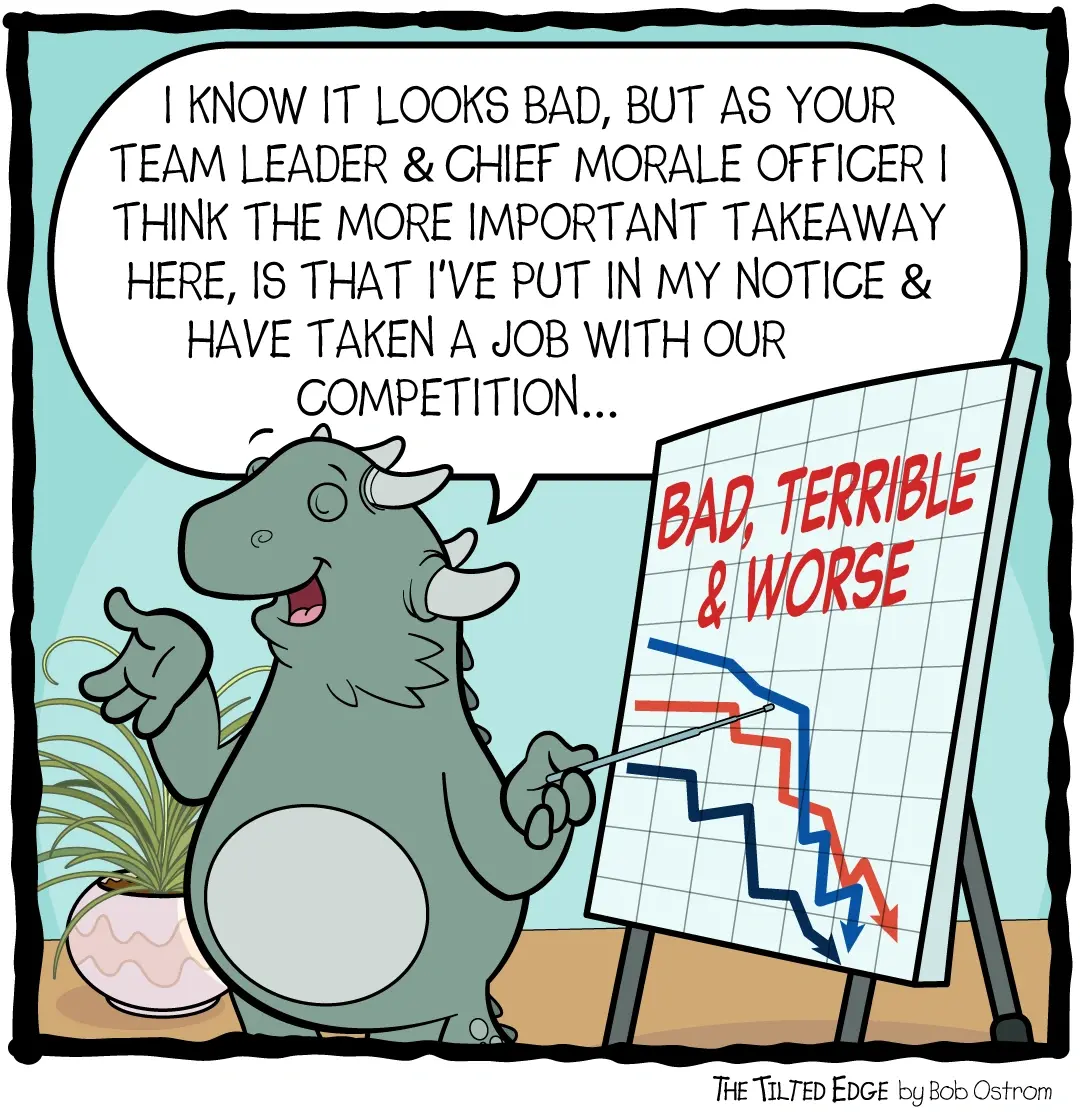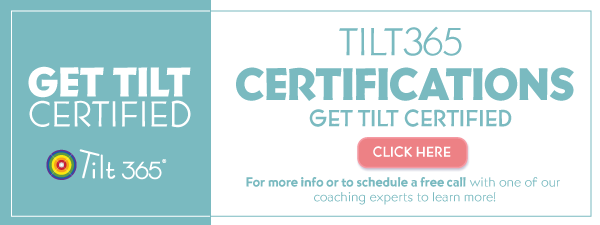Consequences of Organizations Not Developing a Growth Mindset, Generativity, and Thriving


In my previous two posts, I first described the relationship between a growth mindset, generativity, and thriving. In my second post, I described the benefits these concepts have on employees, leaders, and organizations as a whole. In this third and final post of the series, I discuss the negative consequences that organizations experience that fail to prioritize these three vital concepts.
The Consequences
Organizations that neglect to develop a growth mindset and generativity among their employees and leaders face a range of consequences that impact performance, culture, and long-term sustainability. Neglect in these areas creates a ripple effect of negative impacts throughout organizations that directly prevent a thriving workplace. The absence of a growth-oriented culture can lead to stagnation from stifled generativity. Employees and leaders may become resistant to change, resulting in outdated practices and processes. This stagnant environment prevents creativity and adaptation, impeding the organization's capacity to thrive, or sometimes even survive, in an ever-evolving business landscape. Additionally, a lack of emphasis on growth can result in low employee engagement and reduced productivity. When individuals do not feel encouraged to develop their skills and reach their full potential, they become disengaged, leading to decreased motivation and subpar performance. This disengagement not only hampers individual thriving but also negatively impacts the overall financial well-being of organizations' bottom lines.
High turnover rates are another detrimental consequence. When employees and leaders feel undervalued and unsupported in their personal and professional growth, they often seek opportunities elsewhere. High turnover greatly increases recruitment and training costs while reducing knowledge transfer and embedment. This greatly disrupts the stability and continuity necessary for organizations and their employees and leaders to thrive. Also, organizations that don’t promote a growth mindset and generativity further suffer from a poor reputation in the job market. This lack of emphasis on employee and leader development and positive societal impact often deter top talent from joining, limiting the organization's potential to attract individuals who could contribute to a more successful and thriving future.
Organizations that do not encourage a growth mindset also miss out on opportunities for innovation and adaptation. Employees and leaders often hesitate to propose new ideas or take calculated risks, inhibiting the organization's capacity to evolve, let alone thrive, in competitive markets. Ineffective problem-solving and decision-making processes are also a result of employees and leaders lacking a growth mindset. Without the ability to approach challenges with creativity and resilience, the organization may face poor outcomes that hinder its overall performance and stability. The absence of a growth mindset can curtail collaboration and knowledge sharing among employees and leaders, with activities such as mentoring, coaching, and knowledge exchange becoming less prevalent. This restricts the transfer of vital insights and best practices necessary for individual and organizational thriving.
The failure to promote growth also results in a lack of effective leadership development. Identifying and nurturing future leaders becomes a challenge, creating leadership gaps that greatly disrupt succession planning. A deficiency in leadership has a profound negative impact on the organization's ability to thrive. Additionally, the overall organizational culture itself will suffer significantly. The absence of a growth mindset and generativity can foster a negative atmosphere characterized by distrust, low morale, and limited collaboration. This leads to a toxic culture that undermines the sense of belonging and purpose crucial for individuals to thrive within their work environment.
In sum, when organizations neglect to promote a growth mindset and generativity among their employees and leaders, they inadvertently create an environment destined for negative consequences. These consequences extend far beyond individual employees and leaders, affecting the organization's capacity to thrive as a whole. When organizations fail to foster a growth mindset and generativity in their employees and leaders, they risk creating an environment that is high in conflict, resistant to change, lacking in innovation, and characterized by disengagement and poor performance. To mitigate these consequences, organizations should prioritize developing these qualities in their leaders and employees to create a culture of continuous learning, collaboration, and positive impact.
How Tilt Can Help
Tilt’s suite of assessments, Team Agility Labs™, and Laser Coaching are fantastic resources for HR leaders, consultants, and coaches in fostering growth mindsets and generativity that result in the thriving of leaders and employees. These products and services collectively contribute to enhancing these qualities, resulting in a more innovative, impactful, and productive workplace.
Personality Assessments: Personality assessments, such as the True Tilt Personality Profile™, provide individuals with deep insights into their character strengths, work preferences, and areas for growth. By understanding their unique traits, individuals can cultivate self-awareness, a cornerstone of both growth mindsets and generativity. Recognizing the potential for development and improvement, in themselves and others, individuals are more likely to adopt a growth mindset and contribute to a learning environment. This self-awareness also fuels a sense of purpose, resilience, and dedication to continuous improvement beyond themselves, which are integral components of generativity and thriving.
Team Agility Assessments: Tilt’s Team Agility Predictor™ enables teams to gauge their collaboration, adaptability, and agility to overcome obstacles and solve problems. This assessment aligns closely with the principles of both growth mindsets and generativity, as teams that score high on agility are more likely to contribute to a learning environment by engaging in knowledge-sharing and mentoring. Together, agile teams reflect the attributes of thriving by embracing challenges, learning from setbacks, and consistently seeking avenues for improvement.
Team Agility Labs™: Tilt’s Agility Labs™ provide teams with a structured process to enhance their agility, collaboration, and adaptability based on real work scenarios. These labs further amplify the connection between growth mindsets, generativity, and thriving, by helping teams learn to embrace each others' strengths in ways that enhance agility in response to challenges. The collaborative and constructive nature of Team Agility Labs™ also fosters a culture of knowledge-sharing and mentorship, which promotes generativity. As teams become more agile and collaborative, they contribute to an organizational environment of growth and thriving.
Laser Coaching: Laser Coaching offers personalized guidance to individuals, enhancing their ability to navigate challenges, develop strengths, and build resilience, which are essential components of both growth mindsets and generativity. Through laser-focused coaching, individuals learn to approach setbacks with a growth mindset, viewing them as learning opportunities. This type of coaching also empowers leaders to embrace generativity by refining their mentoring and leadership skills. This personalized support contributes to personal and professional growth, driving individuals toward their full potential of becoming generative and thriving.
Collectively, Tilt's assessments, labs, and coaching certification create a holistic approach to enhancing growth mindsets, generativity, and thriving. Organizations that implement Tilt's resources generate an environment with reduced conflict that values personal development, collaboration, and continuous learning. This fosters a culture where employees and leaders are encouraged to embrace challenges, experience personal and professional growth, and positively contribute to the legacy of the organization and society. By leveraging these assessments and services, leaders help cultivate an organizational environment conducive to sustainable growth, continuous learning, and positive contributions that ultimately underpin thriving and sustained success.



